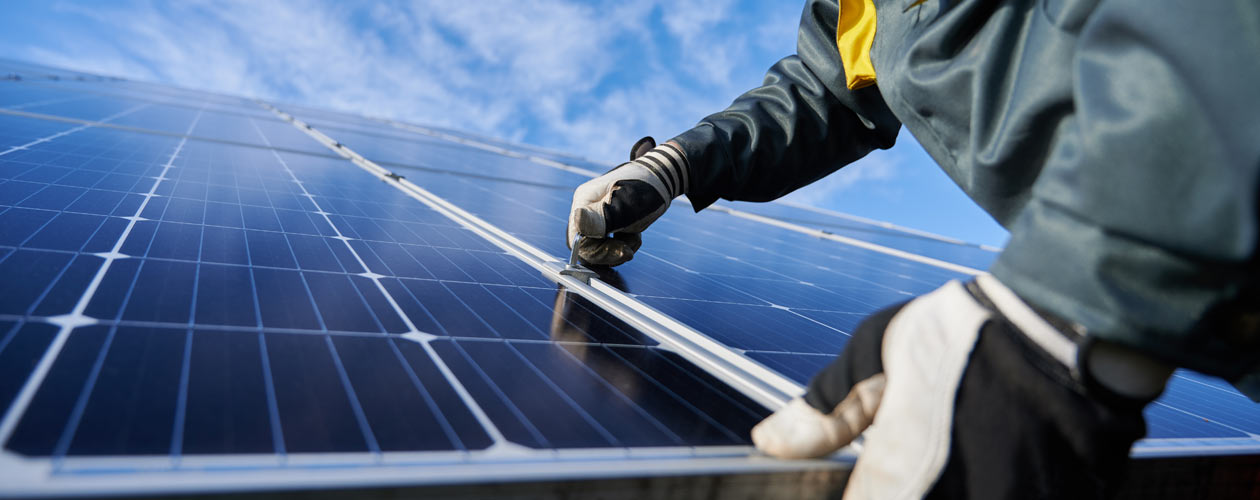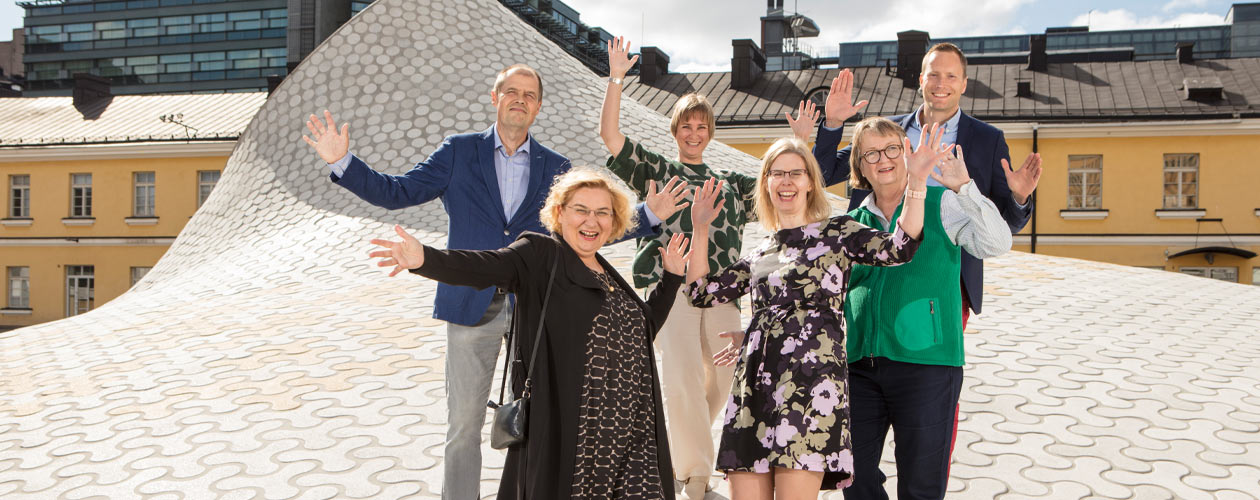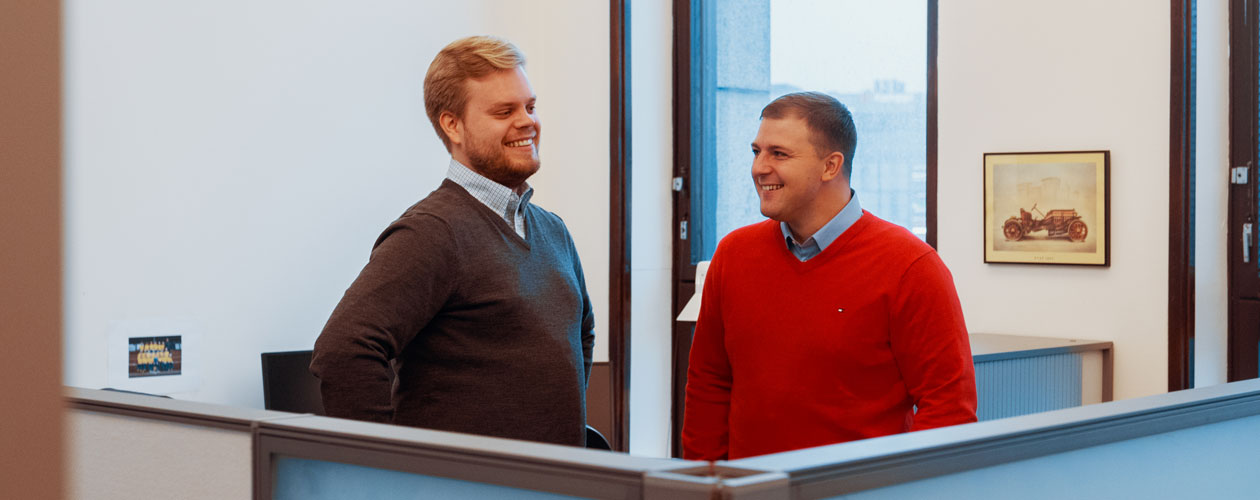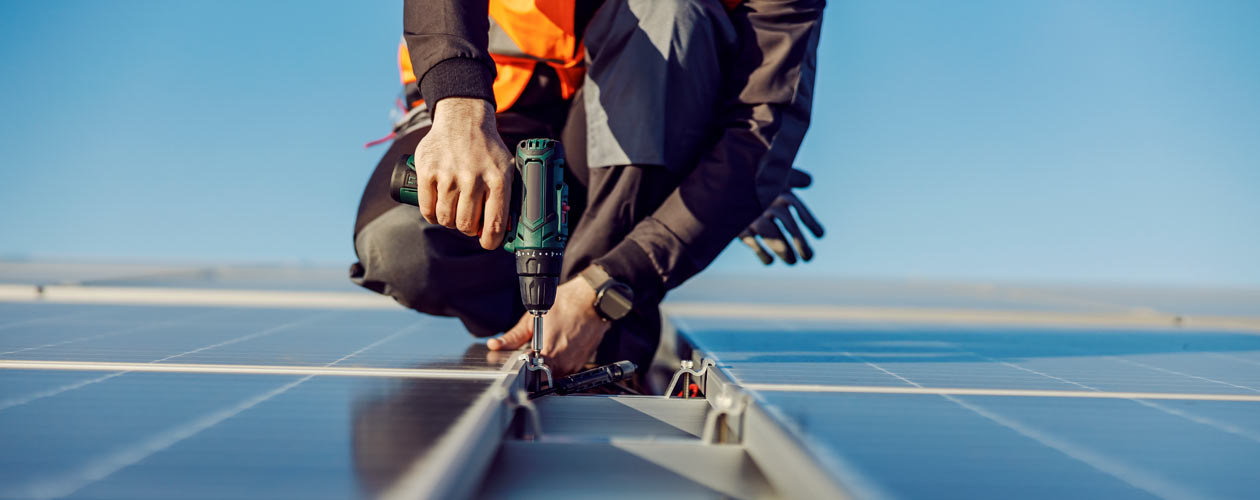Sustainable solar power
The energy system is moving step by step from fossil fuels to renewable ones. In many parts of the world, renewables such as solar and wind power are already the cheapest production methods when building new electricity generation systems. No energy production method is without its problems, but the disadvantages of solar power are relatively small and manageable compared to many other production methods. Hansel offers a DPS through which solar power plants can be acquired.
The environmental sustainability of solar power plants is a combination of many aspects. Solar power plants do not generate any noise or local emissions. The carbon footprint of a power plant is strongly influenced by where and with what kind of energy the components were made, and what type of electricity they replace. Typically, the emission benefits are obvious, even if the panels were made in China with coal-based electricity and are used to replace relatively low-emission electricity in Finland. In many areas, solar power plants produce electricity at the “right” time, i.e. when the consumption level is highest. It remains to be seen what role solar power will play in Finland in the long term as the share of wind and nuclear power – which perform better in winter – increases, as the plants also produce electricity in the summer.
The potential environmental problems with solar power plants are related to the handling of decommissioned plant components. The problem is still small but is growing fast around the world. Most of the materials are easily recyclable: glass, aluminium, silicon, plastic, copper and silver. Technically, more than 95% of these can be recycled as materials, but it is currently not economically viable to recycle all fractions. Advances in technology, waste volumes and regulation are likely to quickly change this.
As far as financial sustainability is concerned, there are no major problems with the procurement of solar power plants. No shadow economy has emerged, and the compliance of Hansel’s suppliers with the Act on the Contractor’s Obligations and Liability when Work is Contracted Out is verified when they participate in the DPS. The investment is highly profitable for office-sized properties, and the typical repayment period is some ten years.
Code of Conduct requirements promote social responsibility
The social responsibility of solar power plants is raised occasionally. Solar panels consist of some 35% of a power plant, 20% is labour, 20% is an inverter that converts direct current into alternating current for the power grid and 25% is installation mechanics, wiring and other small supplies. The design and installation work naturally take place in Finland by local operators. Most inverters come from large European or Asian manufacturers. The installation mechanics and other supplies also often come from Finland.
Solar panels are made in Finland, elsewhere in Europe and in Asia. Some of the silicon cells inside the panels are manufactured in Europe, but most come from Asia (China and Taiwan). In China, much of the manufacture is concentrated in the Uyghur areas of Xinjiang, where forced labour has been reported. Up to 40% of all the silicon cells in the world are made in Xinjiang. However, not all silicon cell production chains involve forced labour.
Hansel’s contractual suppliers are committed to a Code of Conduct that obliges them and their subcontractors to break free from any supply chains including forced labour. In the future, the risk will be reduced, as manufacture is decentralised to more locations around the world. More and more customers are setting increasingly stringent sustainability requirements, which also forces suppliers to scrutinise their supply chains more closely. If necessary, Hansel can audit suppliers.
Overall, the procurement of solar power plants can be considered a very responsible purchase from the perspective of economics, the climate and environment, social responsibility and preparedness.
Read next: Hansel as an employer
You may also be interested in
Sustainability management
Hansel’s sustainability work has long traditions: it started on some environmental issues in 2006, and more has been done to promote sustainability every year.
Sustainability is managed with information
In the current work on sustainability, the emphasis is quite different from what it used to be: instead of pretty phrases, people want facts, and preferably in numerical or at least structured format.
Hansel.fi: Solar power plants 2020–2026 DPS
A dynamic procurement system (DPS) can be used to acquire solar power plants and related installation services and other services.




